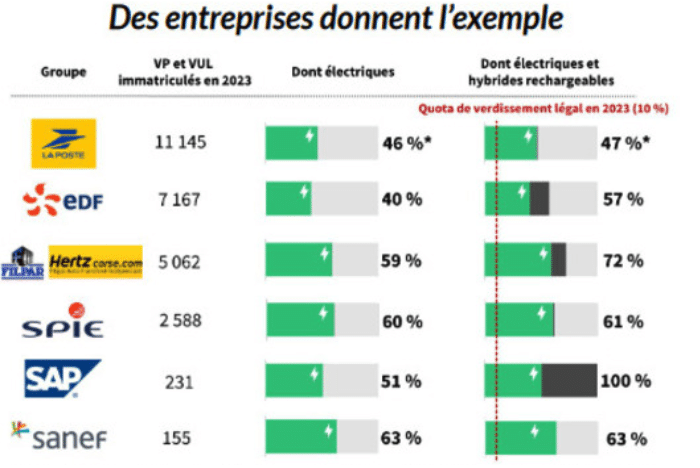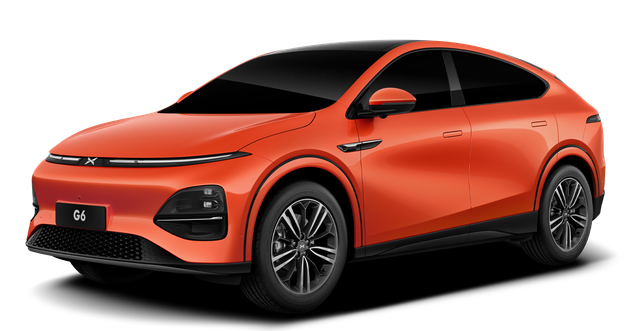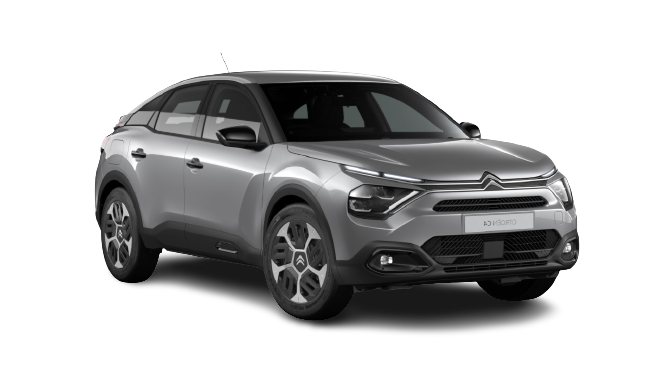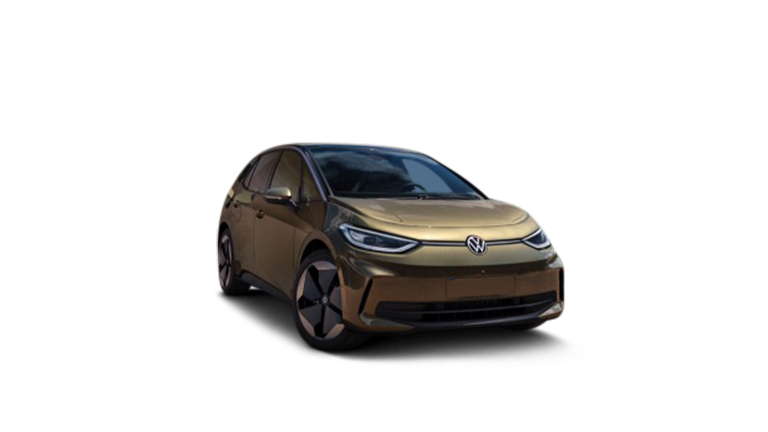What are the legal requirements for companies to make the transition to electricity?
Current legislative framework: deciphering obligations
Under French legislation, companies are subject to strict obligations to accelerate the ecological transition of their vehicle fleets. The LOM lawlaw, reinforced by the Climate and Resilience Actimposes a demanding legislative framework, with clear targets for companies with more than 50 employees. This legislation aims to facilitate the deployment of new mobility solutions and to initiate a transition to cleaner means of transport, notably through the electrification of vehicle fleets.
In accordance with the LOM law, companies with a fleet of of more than 100 vehicles are required to respect a schedule for renewing their fleets, including a minimum proportion of low-emission vehicles. The targets set call for the introduction of 10 % of low-emission vehicles by January 2022, 20 % from January 2024, 35 % for January 2027and finally 50 % by january 2030.
However, faced with the number of companies not complying with the regulations (i.e. more than 2,000 companies out of about 3,500 in France), a new bill has been proposed. This intervenes to strengthen fleet electrification quotas and introduce penalties in the event of non-compliance with these obligations. The bill would also exclude plug-in hybrid vehicles from these quotas as early as next year, pushing companies toward more authentic electrification of their fleets.
Some companies such as SNCF, Iliad-Free, Air Liquide, and Carrefour are posting electric vehicle acquisition rates well below expectations, while good performers such as EDF, La Poste, and SPI are far exceeding targets with consistent registrations of electric vehicles.

Source : T&E
Also read → On-site charging stations: what does the law say?
Planned changes and reinforcements: towards stricter regulations?
In response to the urgent need to address climate change, French regulations on the electrification of corporate fleets are changing. The finance law introduces major adjustments to encourage companies to accelerate their transition to electromobility, notably through a new environmental bonus and the introduction of an environmental score. However, companies can no longer claim the ecological bonus for the purchase of new cars, with the exception of a €3,000 bonus for the acquisition of electric commercial vehicles category N1.
In addition, as mentioned above, a proposed law by MP Damien Adam is being considered to achieve the greening objectives for corporate fleets. Here are the key points of this proposal:
- Companies will have to integrate an increasing proportion of ultra-low-emission vehicles into their fleets (20% by 2024, 40% by 2026, 65% by 2028, and 95% by 2030).
- Plug-in hybrids will be excluded from the calculations in favor of all-electric and hydrogen-powered vehicles.
- Fines of up to €10,000, or €20,000 in the event of a repeat offence, may be imposed on companies failing to meet greening quotas.
- Companies will have to declare their level of achievement of greening objectives, or face financial penalties.
- Vehicles converted to electric or hydrogen power will be considered as new models for the purpose of calculating quotas.
- Cab and VTC fleets will be included in the new greening trajectories.
Benefits and subsidies: why should companies go electric?
How can I benefit from electrification grants?
Various financial and tax incentives are available to companies to facilitate the electrification of their vehicle fleets. Although the ecological bonus for the purchase of new electric cars has been abolished for companies, they can still benefit from a bonus of 3,000 euros for the purchase of new electric vans.
The conversion bonus has also been adjusted, and is now conditional on an environmental score, the eco-score, which encourages the acquisition of less polluting vehicles. Bonus amounts vary according to vehicle type, offering up to 8,000 euros for certain commercial vehicles, depending on their category.
In addition to direct purchase subsidies, significant tax benefits are available to companies that include electric vehicles in their fleets. Exemption from theex-TVS (annual tax on CO2 emissions and annual tax on atmospheric pollutant emissions) for electric vehicles. This reduces the annual cost of using these vehicles. In addition, exemptions from registration tax (ex-carte grise) are available for electric and plug-in hybrid vehicles, representing significant savings.
We recommend that you carry out a fleet audit to identify your needs and assess the feasibility of your project. This audit includes an analysis of costs, savings and recharging infrastructure requirements.
What are the benefits of having an electric fleet?
The electrification of a company's vehicle fleet is part of a global strategy that is beneficial on several levels.
Significant savings
Switching to an electric fleet offers companies non-negotiable savings. Firstly, the cost of energy to charge an electric vehicle is generally lower than the cost of fuel for a combustion-powered vehicle. Charging an electric vehicle to cover 100 km generally costs between €2.25 and €3.41 in France, while the cost for a combustion-powered vehicle is around €9 for the same distance. In addition, electric vehicles require less maintenance, as they have fewer moving parts and do not require oil changes, which reduces routine maintenance costs and extends the vehicle's lifespan. Exemption from certain taxes and subsidies on purchase further increase these savings.
Brand image enhancement
A commitment to electromobility enhances a company's brand image, positioning it as a responsible, forward-thinking player in the field of sustainability. This is well illustrated by the companies mentioned at the start of this article. Consumers are increasingly aware of environmental issues, and value companies that take concrete steps to reduce their carbon footprint. Having an electric fleet can therefore improve brand perception with customers, partners and employees, fostering loyalty and attracting new talent sensitive to these issues.
Optimized performance
Electric vehicles offer a superior driving experience, with instant acceleration and quieter operation, enhancing driver comfort. What's more, the environmental performance of electric vehicles is undeniable, with zero CO2 emissions in use, contributing directly to the company's greenhouse gas emission reduction targets. This improved performance is not limited to environmental aspects, but also extends to logistics and operational efficiency, as electric vehicles can be recharged on site, reducing the time and costs associated with refuelling.
Also read → The benefits of electric cars for SMEs
Is the future of the car fleet electric?
Reducing CO2 emissions: a crucial challenge for businesses
In 2024, reducing CO2 emissions is a crucial issue. Companies are at the heart of this transition, driven by technological advances and ecological imperatives, with a focus on reducing their carbon footprint as part of the National Low-Carbon Strategy (SNBC). This strategy aims to achieve carbon neutrality by 2050.
Companies are encouraged to adopt electric and plug-in hybrid vehicles in their fleets, an important step given the rise of low-emission zones (ZFE) zones and the need to reduce emissions in urban areas over 150,000 inhabitants. The benefits of electric cars include not only a reduction in air pollution, but also better energy management thanks to the potential of Vehicle-to-Grid (V2G) technologies, which enable energy to be fed back into the power grid during peaks in demand.
The country's commitment to reducing CO2 emissions has resulted in clear targets: to cut emissions from 441 million tonnes in 2019 to 315 million tonnes in 2030, with a strategy based on responsible growth and effective anti-emission measures (decarbonization of industry, promotion of clean vehicles). This path towards a low-carbon economy also includes mandatory carbon reporting for large companies, encouraging them to measure and publish the emissions linked to their activities.
What are the consequences for recalcitrant companies?
Tougher regulatory requirements
The European Union has taken steps to regulate corporate practices, particularly in the automotive sector, in order to speed up the transition to a green, sustainable economy.
The proposal for a directive of the European Parliament and of the Council on the duty of care of companies with regard to sustainability and its amendment in 2022 (Directive 2019/1937) underlines the importance of corporate behavior in all economic sectors. Companies must integrate sustainability into their governance and management systems, and make business decisions taking into account impacts on human rights, climate and the environment, as well as the company's long-term resilience. This directive highlights the need for companies, particularly those in the automotive sector, to identify risks related to respect for human rights and environmental impacts.
Implementation through sanctions
EU companies that fail to comply with these enhanced regulatory requirements face sanctions. Although the precise details of sanctions are adjusted according to the context and severity of non-compliance, the regulatory framework is moving towards fines and mandatory measures. The aim is twofold: to encourage the implementation of sustainable practices and to punish non-compliance effectively.
Impact on recalcitrant companies
Companies risk significant fines, which could have a direct impact on their profitability. What's more, the impact on their reputation could damage their relations with consumers, investors and business partners, as transparency and duty of care have become essential criteria for these stakeholders.
The automotive sector is a particularly good illustration of the complexity of these challenges, with, for example, around 450,000 electronic and software requirements for a well-equipped mid-range vehicle, plus a further 50,000 mechanical and regulatory requirements. This complexity accentuates the need for automotive companies to meet sustainability and environmental impact standards, on pain of penalties for non-compliance with current regulations.
Also read → The obligation of electrical terminals: electrify your business
Conclusion
The move towards tougher requirements and penalties for recalcitrant companies therefore underlines the imperative of compliance in the context of the transition to a greener, more sustainable economy. Automotive companies, in particular, must navigate a complex and evolving regulatory environment, integrating sustainability into all levels of their operations to avoid potentially serious financial and reputational consequences.
For more information, we've put together a guide to this topic to explore the different aspects in depth:
Read our article about :

































